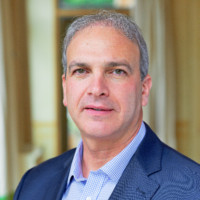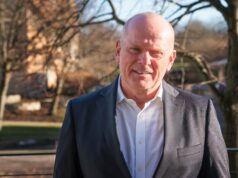
Saniona om de pausade Tesomet-programmen och omstruktureringen
Saniona har gjort en frivillig paus av de två kliniska fas IIb-studierna med Tesomet och dragit ned på arbetsstyrkan med cirka 30 procent, helt beroende på begränsade finansiella resurser. Samtidigt som bolaget strävar efter att hitta finansierings- och/eller partneralternativ som skulle kunna göra det möjligt för Tesomet att fortsätta, kommer Saniona att fokusera på sina övriga tillgångar SAN711 och SAN903. Marknaden reagerade kraftigt negativt på beskedet och aktien rasade med cirka 60 procent under förra veckan.

BioStock kontaktade Sanionas vd Rami Levin för en kommentar om de åtgärder som kommer att vidtas – och för att få hans syn på Sanionas framtid.
– I want to start by saying that I understand that many investors have questions about our decision to pause the Tesomet trials, and we are working to address their questions. Over the past year, Saniona has been evaluating multiple strategic financing options, and over the past six months has also been pursuing business development options. However, during this time, and particularly recently, the market conditions to raise capital have deteriorated significantly. While 2021 was a difficult year for biotech stocks, we were confident, and so were our investment banks, that we would be able to raise the money needed given our strong pipeline. Unfortunately, 2022 has started off even worse than 2021.
– Thus far in 2022, global macroeconomic conditions related to the war in Ukraine and rising interest rates have made it increasingly difficult to raise the amount of money we needed to fund the phase IIb trials. Given these difficulties, we felt the most responsible thing to do is to immediately reduce costs to extend our cash runway. By far the largest expense to the company was the two phase IIb clinical trials, which is why we decided to pause the Tesomet trials and restructure our organization.
Why did you start the phase IIb trials if you knew you did not have sufficient funding?
– We have evaluated multiple financing options, reached out to more than 150 large institutional investors, and met with many of them. We and our investment banks were confident that we would be able to raise the money needed, and during the process we received and evaluated term sheets from certain investors. Unfortunately, given the market conditions, many investors were focusing on larger cap companies with higher liquidity and near-term catalysts, which eventually precluded us from being able to raise the amount of money we needed and consummate a transaction on acceptable terms.
Why have you been unable to obtain funding or a business development (BD) deal?
– As I mentioned, we have met with and received positive feedback from multiple large institutional investors. In the last four months alone, we reached out to more than 150 large institutional investors. The feedback we have received is that they are positive on Tesomet, the ion channel platform, and our management team. However, given the market conditions, many investors were focusing on larger cap companies with higher liquidity and near-term catalysts. This precluded them from investing in companies like Saniona at this time. While we are still actively pursuing financing options, this has changed our strategy regarding the types of financing we would be able to raise.
– Regarding business development, we have been very active over the past six months on this front as well. The average timeline for completing a BD deal in the biotech industry is 12-18 months, but we have been evaluating options to accelerate this timeline. One of Saniona’s strongest differentiators is that we have multiple valuable assets – not only worldwide rights to Tesomet but also multiple potential first in class ion channel programs. We have now expanded our business development efforts to include any opportunities that could allow Tesomet to advance.
What will happen if Saniona cannot raise funding by the second half of 2022?
– We continue to believe in Tesomet and that the initial phase II data support further development of Tesomet in Hypothalamic obesity (HO) and Prader Willi Syndrome (PWS); we also were able to secure orphan drug designation from FDA for both indications, and we were the first to achieve this in HO. We also believe there is significant value in our ion channel modulators.
– This is why, although we have paused the Tesomet trials, we are actively evaluating strategic financing options as well as business development opportunities that could allow Tesomet to advance, either with Saniona or with a third-party, as well as fund our future operations. That said, all businesses involve risks, and the risk in biotech is generally very high. There is no guarantee that we will be able to raise sufficient capital on acceptable terms, as we have outlined in the risk factors in our 2020 Annual Report.
Why would you halt Tesomet rather than the ion channel programs?
– The international phase IIb Tesomet trials were by far the largest expenditure for Saniona, which is why we needed to halt them to immediately reduce our operating expenses. This also allowed us to further reduce expenses by restructuring our organization and eliminating certain positions. The strategic restructuring actions, which will take some time to be fully realized, are expected to decrease Saniona’s anticipated future average quarterly operating expenses by about 50 per cent.
With Tesomet paused, what do you see as Saniona’s value proposition?
– To be clear, Tesomet remains a valuable asset to which Saniona holds worldwide rights. We continue to believe in Tesomet and that the initial phase II data support further development in HO and PWS. Whether we advance Tesomet ourselves or potentially with a partner, the value and the market potential of this asset is unchanged.
– In addition, one of Saniona’s primary differentiators is our ion channel drug discovery engine and pipeline. Here too we have multiple potential first-in-class assets that we may advance ourselves or through partners. The industry remains interested in ion channels as evidenced by the continued BD deals done in this area of research during 2021 and early 2022.
In the beginning of March, you told BioStock that “the fundamentals of our business are very strong.” Has this changed since then?
– The fundamentals of Saniona’s business, meaning the progress we have been making with Tesomet and our ion channel modulators, absolutely remain strong – unfortunately, we currently do not have the funding to advance all of our programs simultaneously. We are focused on continuing to pursue strategic financing options and business development opportunities to remedy this.
Your largest investor RA Capital just disclosed the sale of some shares. How should investors think about this?
– As Saniona is a public company, each of our investors has the right to buy or sell shares according to their own investment strategy, which they have no obligation to disclose to us. Therefore, we cannot control or speak to their investment strategy. If we receive updated shareholder data, as we did with RA, we will update our website immediately.
Finally, what do you see as Saniona’s future?
– As I’ve said previously, we remain confident in the value of Tesomet and our ion channel pipeline. This is a challenging time for Saniona – we are extremely disappointed to have to undertake such drastic measures to conserve resources. I can assure our investors that we are tirelessly continuing to pursue strategic financing options and business development opportunities. The Board and management are determined and fully committed to lead the company through this difficult time.
– We see multiple possible paths forward that would allow Saniona to continue our mission to discover, develop and ultimately commercialize new medicines to treat rare diseases. This could involve a financing and/or various partnership strategies to advance Tesomet and our ion channel assets. We look forward to keeping the market updated.


